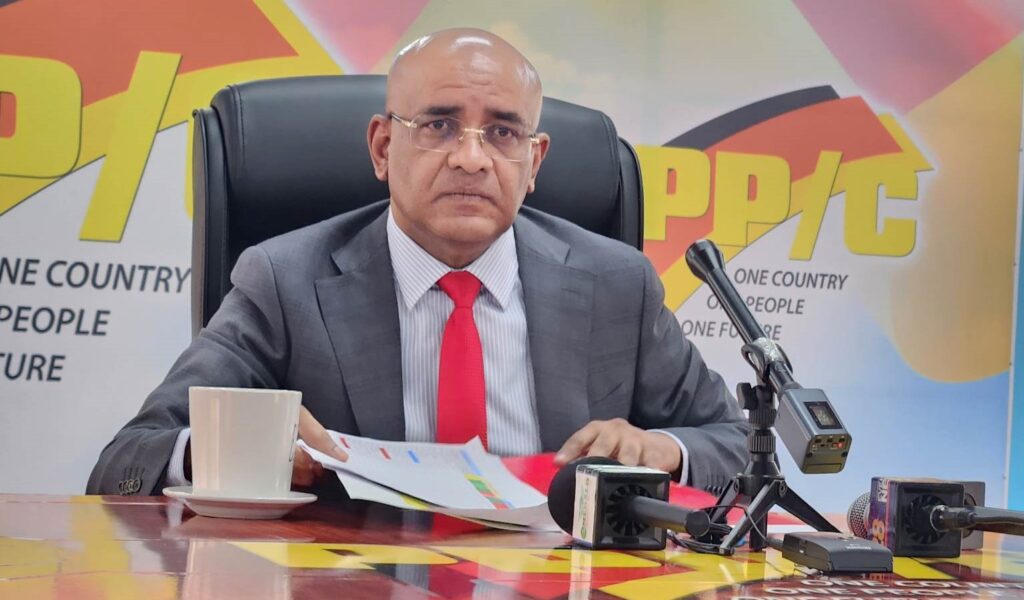
Vice President Dr. Bharrat Jagdeo on Thursday warned other regional leaders to be cautious in their negotiations with Venezuela which faces a reimposition of oil sanctions for failing to meet its end of the bargain and allow full participation in its upcoming elections.
Dr. Jagdeo spoke at a press conference of the ruling PPP, for which he serves as General Secretary. His comments are in the wake of the fresh U.S. action against Venezuela following the recent decision of its top court to uphold a ban that blocks the leading opposition hopeful Maria Corina Machado from presidential elections.
Like many others, Jagdeo also believes that the Maduro regime’s recent course of action should be interpreted as having violated the Barbados agreements which, among other things, sought free and fair elections by allowing the elected opposition leaders to run in those elections.

“You’re dragging me into a minefield,” Jagdeo said when asked by a journalist to state the Guyana Government’s view given the recently signed Argyle Declaration between Guyana and Venezuela.
That agreement seeks to quell tensions in the decades-old border controversy with a commitment to keep the peace and not use force.
But while Guyana continues to engage Venezuela in talks, Jagdeo maintains that the border controversy is to be settled at the International Court of Justice.
His particular caution, just as he did in December last, is for Trinidad and Tobago which is going ahead with negotiating exploration, production, and export of natural gas from the Dragon Gas Field in Venezuela.
This is despite the U.S. ordering a wind-down of all business transactions between U.S. entities and Venezuela.
“I have seen a statement from Trinidad where there were concerns about Dragon Field.
“The minister issued a statement that the United States has given them an extension beyond April up to 2025 to negotiate an agreement with Venezuela.
“I urge Trinidad to be very cautious in those negotiations and…just be cautious,” Jagdeo said.
He told reporters that Venezuela often doesn’t respect agreements and cannot be a trustworthy partner in negotiations until it demonstrates otherwise.
“They have absolutely no evidence that the 1899 agreement is flawed and they repudiated an agreement of that nature while the borders were settled over 100 years ago.
“We are in our engagement with Venezuela. We are trying to see if we can’t work at a series of confidence measures… but we are still mindful of extremism that is dominating government rhetoric,” Jagdeo added.
Last week, a month after Guyana’s President Dr. Irfaan Ali and his Venezuelan counterpart Nicolas Maduro met in St. Vincent and the Grenadines, the foreign ministers of both countries met in Brazil to set up another round of talks between the two Presidents.
Following the end of the talks, both sides agreed to continue such engagements, particularly on common issues like crime and climate change, and the two Presidents will meet soon.
Guyana maintains that the Essequibo Region is its own after an 1899 Arbitral Award determined the boundary between the two countries as is internationally recognised.
Because of Venezuelan aggression and decades of failed talks, Guyana eventually took the border controversy to the ICJ where the case is ongoing. Guyana hopes for a final, binding judgement that affirms that the Essequibo is its own.




